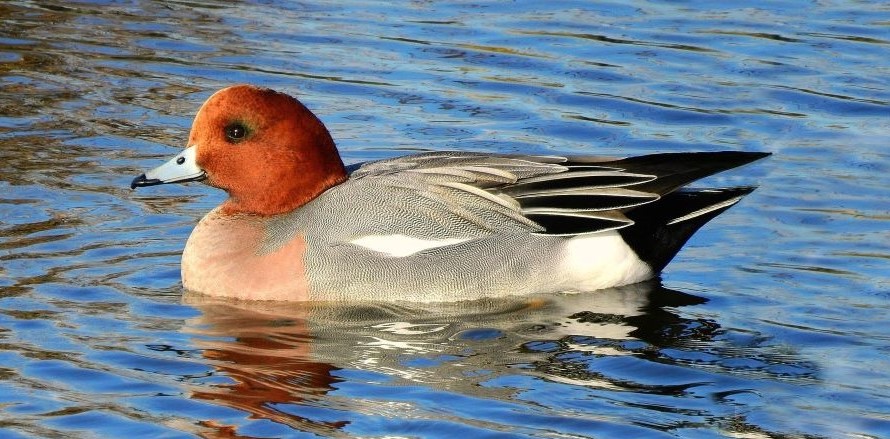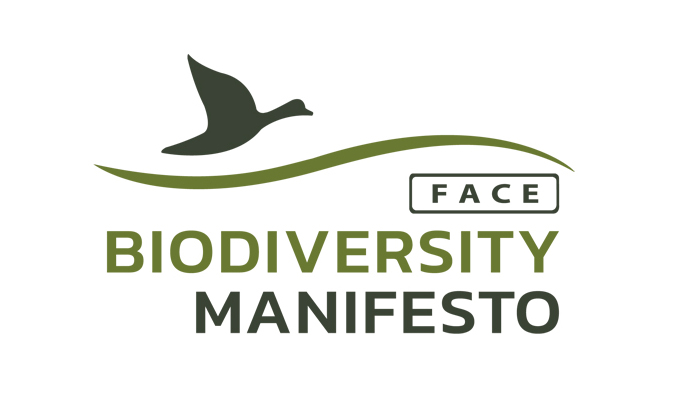
13 Oct 2021 Project Penelope takes flight in the UK – BDM Project of the Month October
The British Association for Shooting and Conservation (BASC) has begun work on the UK-leg of a leading international project aiming to track the Eurasian wigeon.
Titled Project Penelope, after the wigeon’s Latin name Mareca penelope, the study will follow the species’ flyway with field work carried out across the UK, Denmark and Finland. BASC, in partnership with the Waterfowlers Network, will record the species’ winter movements, flight paths and breeding sites. The findings will aid management and conservation regimes across Europe for a species that has seen declines in breeding density and range in the last 20 years.
Over the next three years a dedicated army of researchers and bird-ringing volunteers in the UK, Denmark and Finland will ring more than 6,000 wigeon. In addition, GPS-GSM trackers will be fitted to around 100 wigeon to show live updates.
POLICY RELEVANCE
Wigeon: The Eurasian Wigeon is considered to have a Threatened EU population status because of the decline in breeding numbers in the EU. However, there is an increasing long-term trend of Wigeon wintering in the EU, due to the influx of birds breeding outside the EU. This contrasting situation during the bird’s annual cycle has been on FACE’s radar for some time, so it is encouraging to see hunters taking important steps to understand the ecology of the species. Scientific research is a crucial element needed for the development of EU processes aiming at ensuring sustainable hunting of species which are not in a secure status.
Wetlands: More than half of Europe’s wetlands have been lost (particularly in Western and Central Europe and the western parts of Eastern Europe) since the 1970s (IPBES). Europe’s hunters play an important role in wetland management in Europe. According to the latest BDM data, most hunter projects focus on the maintenance of open water sites and the creation of new wetlands for ducks. In the future, Europe’s farming systems need to incentivise wetland restoration.
Dr Matt Ellis, BASC’s head of science, said: “The findings from this study could be monumental to understanding the reasons behind the species’ recent breeding population decline. Combined Project Penelope will be the largest study on the Eurasian wigeon. BASC is extremely excited to be playing a major part in the species future”.
Iben Hove Sørensøn, biologist and secretary of the Waterfowlers Network, said: “Project Penelope is an international collaborative project between the shooting community and scientists aimed at improving our knowledge of one of Europe’s most popular quarry ducks. The project will provide invaluable information on the wigeons’ habitat use, movements and demography. Findings will help inform decisions on protected sites and secure sustainable hunting”.
Funding for the project has come from the Ministry of Agriculture and Forestry of Finland, and a £50,000 grant from the Wildlife Habitat Charitable Trust (WHCT). A charity set up by BASC to fund wetland conservation projects in 1981.
Paul Williamson, WHCT secretariat and BASC’s head of land management, said: “The WHCT funds projects that seek to conserve and boost biodiversity. Project Penelope has the ability to further our understanding of this magnificent species and ensure its future on our shores”.
The project is endorsed by Defra and the European Federation for Hunting and Conservation (FACE).
Ringing will take place over the winter in Norfolk, Lancashire, Cumbria, Gloucestershire. To join a ringing operation please contact Matt Ellis, matt.ellis@basc.org.uk. In addition to BASC and the Waterfowlers Network, further project partners include the Danish Hunters’ Association, Aarhus University, Turku University, Helsinki University and dozens of dedicated volunteers. Updates and the latest data will be updated on the Waterfowlers Network website.

Submit your Project!
Every month FACE choses a hunting-related conservation project in Europe as its project of the month. These projects highlight some of the many great initiatives hunters are undertaking to preserve biodiversity.
For further information on the Biodiversity Manifesto, please contact bob.groome@face.eu or visit www.biodiversitymanifesto.com

